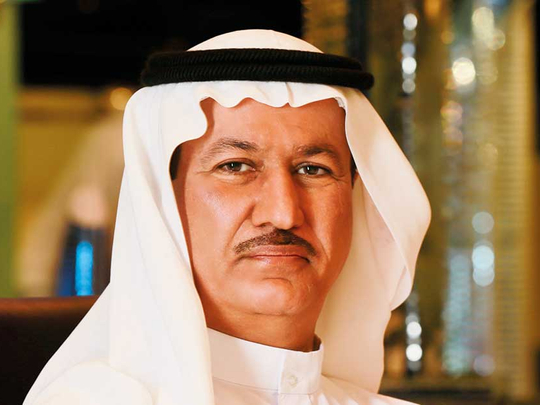
Dubai: The trend among many Dubai developers to launch sales offering low upfront payments — typically 5-10 per cent of the property value — and then stretch the rest of after handover could have major consequences for the market, according to the Damac Group’s chief.
“Typically, construction costs could account for 60 per cent of a project. If buyers in that only end up paying 30-40 per cent during the construction phase, how is the developer going to finance the construction,” Damac chairman Hussain Sajwani said. “Developers can’t expect banks to write them a cheque for all their needs. I don’t think banks will either.
“And what’s the guarantee that all of the buyers who take part in the post-handover payment schemes will stay the entire course of the project and meet all their commitments? Even if 30 per cent of buyers fail on these payments, it’s going to cause huge problems for these developers.
“I think the situation with these payment plans is very risky and can create a dangerous scenario.”
Similar concerns have been expressed privately by some in the local property marketplace. But it is rare for the head of a leading developer to voice the very same concerns outside of boardrooms.
And Sajwani, as his typical of him, did not mince words.
“It’s OK for one of Dubai’s master developers to offer such plans because they have billions in the bank and in their escrow accounts,” said Sajwani. “But that’s not the same for every developer here.
“Some of these schemes are attracting flippers ... as long as they are able to double their returns on the initial 5 or 10 per cent payment they made, that’s fine with them. They are not going to stay around until the project completion.
“If this starts to happen regularly, it’s going to end up with a lot of projects that half complete. And you have those customers who bought in and meet the payments suffering.”
Some market sources have suggested that some sort of government intervention would be needed to curb the practice ... or at least ensure it does not get out of hand.
As for Damac, it is starting to explore more intently development options outside of the Gulf markets. It already has a project running in London, and weighing up the possibilities of making a direct entry into Montenegro, Croatia, Spain and Malta. “Even Germany could be an option as is North America,” said Sajwani.
“We are principally a high-end residential developer and Dubai will remain our development hub and our largest sales market. But when you are a market leader alongside two or three top developers, it becomes difficult to take (new) marketshare.
“We have the financial resources to grow overseas, and that’s what we plan to do in the next year or so.” (As to whether Damac was all set to launch a second project in London, Sajwani replied there was no such plan.)
It has two major master developments — Damac Hills (formerly Akoya) and Akoya Oxygen — at an advanced stage of build out. “We’ve achieved more than 60-70 per cent there — for a developer, land is his oxygen. We will continue looking for additional land in Dubai ... and that’s regardless of how much we already have.”
It completed two projects on Reem Island in Abu Dhabi, and is also building up scale in Saudi Arabia.
But one thing Damac will not be doing is to launch an in-house brokerage firm to handle all of its sales. “It’s my belief that whatever you can subcontract, do so,” said Sajwani. “That leaves you to focus on what I do best — develop.
“The minute you open a brokerage business, you are competing with all the others in the market. And those brokers are less likely to sell your product.
“In the past, I’ve been told we should launch a construction firm to build what we launch. But that’s never interested me. I will stick to what I know best. I know how to buy land at the right price and build the right product and market it.”











